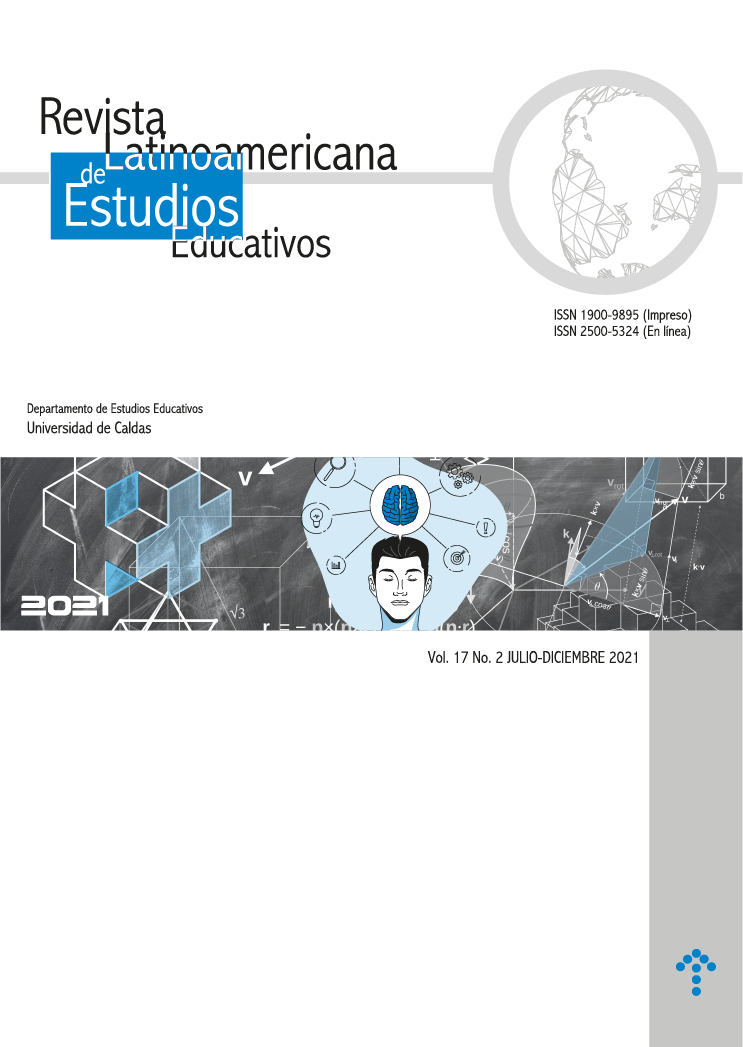Authors
Abstract
"Educacion propia (Own education)" is of great importance for the development of training processes in the educational institution and for the survival of the indigenous people. For this reason, the main objective of this research was to understand the meaning of own education and interculturality, that shape the discourses of students at the Marco Fidel Suárez Educational Institution of Riosucio - Caldas. The ethnographic method was used for this purpose with a population of 22 Middle School students. Field diaries were completed with the observation of educational practices in the educational institution and a questionnaire established through interviews was applied in order to obtain more adequate results to what the research project intended to carry out. Finally, a contextualized curricular proposal was designed to strengthen own education, interculturality and the curriculum accommodating and responding to the needs and expectations of the community.
References
Corpoeducación. (2019). Educar para la paz. Apuestas de los docentes para construir país. Editorial Panamericana.
Fernández Riquelme, S. (2017). Si las piedras hablaran. Metodología cualitativa de Investigación en Ciencias Sociales. La razón histórica. Revista hispanoamericana de
Historia de las Ideas, 37, 1-27. https://www.revistalarazonhistorica.com/37-2/
Fernández Riquelme, S. (2017). Si las piedras hablaran. Metodología cualitativa de Investigación en Ciencias Sociales. IPS Instituto de Política Social. http://hdl.handle.net/10201/54506.
Graciano González, R. (2002). El discurso intercultural. Biblioteca Nueva.
Higuera, A. É. y Castillo, M. N. (2015). La Interculturalidad como desafío para la educación ecuatoriana. Sophia, Colección de Filosofía de la Educación, (18), 147-162. http://www.redalyc.org/articulo.oa?id=441846095009
Institución Educativa Marco Fidel Suárez. (2019). Proyecto Educativo Institucional - PEI. Riosucio-Colombia.
Malla curricular ajustada. Eje curricular territorio, territorialidad y espiritualidad. Inédito. Riosucio – Colombia
Mendoza, Z. R. (2017). Inclusión educativa por interculturalidad: implicaciones para la educación de la niñez indígena. Perfiles Educativos, 39(158). https://doi.org/10.22201/iisue.24486167e.2017.158.58138
Ministerio de Educación Nacional (MEN). (2014). Modelo pedagógico del pueblo Embera de Caldas. Tejiendo saberes, conocimientos y prácticas pedagógicas. Editorial Manuel Arroyave.
Panikkar, K. N. (2002). Culture, ideology, hegemony: intellectuals and social consciousness in colonial India. Anthem Press.
Peralta Martínez, C. (2009). Etnografía y métodos etnográficos. Análisis. Revista Colombiana de Humanidades, (74), 33-52. http://www.redalyc.org/articulo.oa?id=515551760003
Taylor, S. J., & Bogdan, R. (1984). Decálogo de la investigación cualitativa. Extraído y traducido de: Taylor, S. J., & Bogdan, 19-23.
Walsh, C. (2005). La interculturalidad en la Educación. Ministerio de Educación de Perú.
Zuluaga-Giraldo, J. I., & Largo-Taborda, W. A. (2020). Educación propia como rescate de la autonomía y la identidad cultural. Praxis, 16(2), 179–186. https://doi.org/10.21676/23897856.3657.

 PDF (Español)
PDF (Español)
 FLIP
FLIP

























